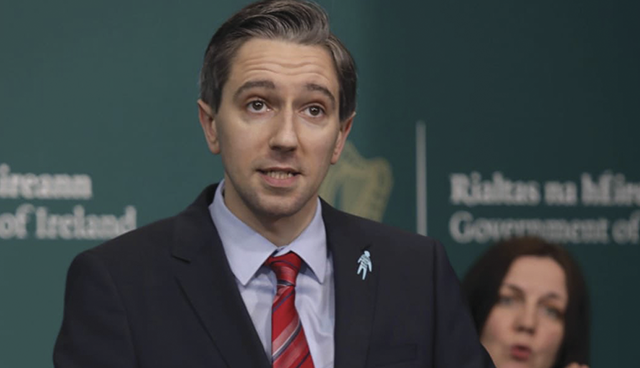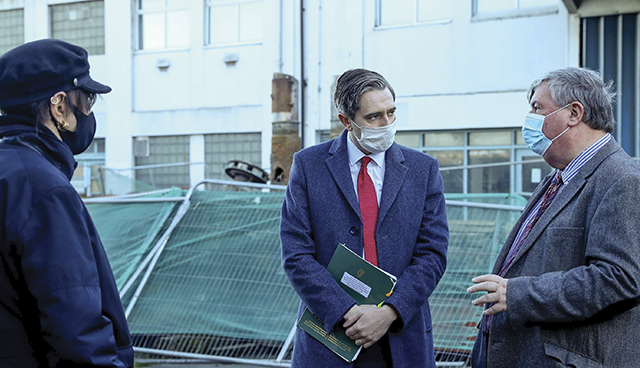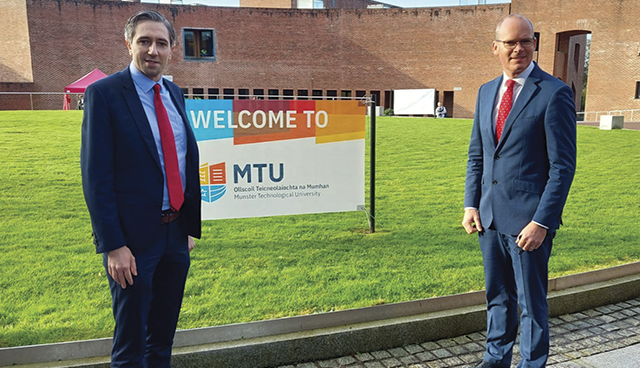Minister Simon Harris TD: Education, skills, and lifelong learning

Education, skills, and lifelong learning are the most robust, transformative and lasting means to future-proof our country’s economic and social wellbeing, writes Minister for Further and Higher Education, Research, Innovation and Science, Simon Harris TD.
Our education and skills system needs to be flexible to meet the needs of the learner, of the economy and of society, in order that Ireland can retain its advantage in the global war for talent by retaining and building on its skilled workforce.
The education and skills system must encompass everyone and must validate everyone’s path on their skills and career journey. The truth of this is borne out by recent experience. It is fair to say Covid-19 has upended each of our lives in different ways. From an economic and societal point of view, it exposed many divides in our society.
One of the most glaring divides was in the area of digital skills. When the world moved online in March 2020, a whole cohort of people were left behind.
One-in-six of us struggle with reading and understanding everyday text. One-in-four adults have difficulties using maths in everyday life. Half of us do not have the basic digital skills we need.
While most of us could work online, do our shopping, our banking online, there was a whole sector of society struggling to get by.
Ireland prides itself on being a knowledge-based economy but until we can tackle the digital divide, we risk leaving a whole generation of people locked out of the economy and society.
This is why my relatively new department is working to address this challenge.
We want to ensure that every single person has the tools to reach their full potential in life. We need to broaden the conversation beyond what people should do in life to what they want to do and how we help them meet those goals.
One of the most important initiatives we have launched this year is a new Adult Literacy for Life Strategy. This is one of the most important things we will do.
“Until we can tackle the digital divide, we risk leaving a whole generation of people locked out of the economy and society.”

This really important piece of work will see significant investment and resources allocated to ensuring people have the ability to read, to write, to go online. From next year, we will place 16 regional literacy co-ordinators in each Education and Training Board (ETB), across the country. This will mean one person will oversee the literacy services and supports that are available throughout the region and can be offered to each person to ensure they have the best chance in life.
What will this mean in practice? Well, I was lucky enough to meet with some women in Kilkenny recently. They told me they felt ashamed of their inability to read and write for years. Because of the work they have done in the ETB, they were able to type me a letter explaining how much it meant to them.
The truth is Ireland will never fulfil its potential if each of our citizens cannot participate in society and that is why inclusion is key in addressing the challenge of ensuring we have a highly skilled workforce. Otherwise, we risk missing out on the skills and talents of a whole cohort of people – and this is bad for the individual, bad for enterprise and bad for society.
My department has achieved a lot in its first year, and we have plans to do a lot more.

“Increasing the visibility of further education and apprenticeships will rebalance the scales.”
Since November 2021, school leavers who have logged on to the CAO webpage can see all of their options including further education, training and apprenticeships.
This is so important. Because across dinner tables over the next few months, our fifth and sixth years will start wondering what is next for them. For far too long, that is a conversation that has focused on the university they want to attend, rather than the career they wish to have.
Increasing the visibility of further education and apprenticeships will rebalance the scales, we hope, and send a strong message that there is no right or wrong way to learn. There are different ways.
Our evolving apprenticeship system reflects this. The Action Plan for Apprenticeship 2021-2025 will bring about a unified and coherent system of programmes, which will make apprenticeship a more recognised and valued qualification. It will be easier for both learners and employers to engage with and present further opportunities within our overall skills offering.
The pace of change in the world of work is exponential and Ireland’s future sustainability and success depends on the achievements of learners, researchers, and innovators, on their specialised knowledge, expertise, on their capacity to progress their own development, and on their collective capacity to widen and deepen social and economic progress, regionally and nationally.
As we enter 2022, there are some key challenges we must get to grips with.
The first is lifelong learning. We know that Ireland in general does a good job of educating our young people. We know though that we tend to stop learning when we enter the workplace. I want to do better on this. How can we best empower and encourage individuals to manage their own career journey, and best support them to do so?
We are thinking a lot about this challenge already, including considering a set of guiding principles for how we develop skills policy around lifelong learning and how we can build on our already strong partnerships with enterprise to embed a culture of lifelong learning across all kinds of businesses.
We know that in a dynamic and evolving economy, there will always be skills shortages. The imperative is to ensure agility and responsiveness in the system to respond to shortages as they emerge.
As our work advances, it will be critical to ensure that this system continues to meet the standards of responsiveness, flexibility, and adaptiveness that we need, now and into the future.





